This article may contain paid links where we make a small commission for purchases you make from links that you click from this article. By purchasing through our links, you support us at no additional cost. Thank you for your support ❤️. For more details, read the disclosure page.
I definitely didn’t have “getting an e-mail from Danny Sullivan and get invited to speak to Google Search engineers” on my bingo card this year. It’s been one of those years of the highs of Sapporo in the winter and Gros Morne National Park to the lows of Google decimating our site traffic and e-Sports induced knee surgery.
As a travel blog, we’ve left the business of blogging largely out of our site, but with everything that’s been going on for the past year with Google, hearing the stories of others in the similar positions, and seeing the power of our collective voices make a difference, I felt compelled to share.
So here I am, sitting on my flight home from San Francisco, after spending 2 days in Google HQ, listening to the crescendo of Ludwig Göransson’s Can You Hear The Music from Oppenheimer. I’m not sure if I heard the music but there were a cacophony of beats at the Google Web Creator Conversation Event.
Something big is coming but the question is, will it be good or bad for us bloggers.
Main Takeaways
This is probably what you care about the most if you’re a fellow blogger. Thinking about everything that we discussed throughout the day, here are the important details.
The Google Web Creator Conversation Event was a good first step but many will say that it’s too little, too late. The “bring back my traffic” or “am I shadow banned?” wasn’t addressed. They heard our cries for help so I am hopeful that there’ll be further investigation. Lastly, I truly believe that they want to fix things but it will likely be in other ways.
Broad Strokes
- Started off with profusely apologizing and thanked us for showing up, as if they had expected us to say “no”.
- Google Search’s guiding North Star is surfacing “helpful and satisfying results”. – I know, not helpful.
- Google is genuinely wanting to find a way to help small and independent publishers.
- There will be coming updates to the algorithm soon but there’s no promise of anything. Plus, any action that comes from our discussions won’t be seen for some time.
- It’s very much a “it’s not you, it’s me” situation where they know that our group creates helpful content and it’s a case of Google “catching up”. With that, HCU recovery isn’t going to be anytime soon. Reading between the lines, we are better off diversifying.
- There’s a huge disconnect between different parts of the business such as between Search and Ads, and even whatever team that’s responsible for SERPs.
- This is the start of more of a dialogue between Google and creators as a broader whole but they don’t even know what this will look like.
- Google is scared of making big moves because of spam and bad actors. They’re also worried they’ll break things with future changes.
- Googlers know very little about how the business of blogging works. One even admitted that they hadn’t heard of the acronym HCU before internally.
- Traditionally, Google hasn’t paid too much attention to small publishers but they’re realizing that maybe they should vs. the SEOs.
Specifics
- There’s interest in exploring several ideas we honed in on.
- Better signals to publishers – This could be in the form of something on Google Search Console.
- An alternative way to surface content creators – One idea was some sort of carousel that only contained small and independent publishers.
- Verification – What if we could distinguish ourselves in search by having some sort of verified mark that indicates that we’re real humans, creating helpful, authentic content.
- Real images – This is the idea of using original images as a way to determine if an article/site is legitimate and whether it’s something that Google determines or if we send some signal to let them know. This tells me that they have trouble figuring out who is writing authentic articles or not.
- Ranking is largely at the page level – They stressed that page-level signals are the majority of what is used when serving search queries.
- Publishing multiple articles at once – Someone in the reviews category asked whether dropping 5-10 articles at once is an issue. The answer is no.
- Display ad guidance – It became clear that the search team has never given the ad team specifics on what is good or bad. This means that what ad networks has been feeding us may be misguided.
- Update dates – Mostly the general guidance of doing what makes sense for your audience which is not helpful.
- Search quality raters – They do side-by-side experiments especially when testing new algorithm changes. If on aggregate, the fix results in improvement, the change gets deployed. Their guidelines don’t state that ads are bad. Lastly, the system is designed so rater inputs do not directly feed into search as a signal.
Overall
| They know there’s something up and they are going to look into it. | There’s no timeline and no promises. Overall, it doesn’t seem like something that will we’ll see sweeping resolution soon (if at all). |
| At least our group now have a way of connecting with Google Search through Danny. | No acknowledgement that there are site-wide classifiers on sites that have been affected by HCU. |
| Whatever we said was useful for the engineers. | Pre-September 2023 not coming back. |
| I know that Danny cares deeply and is having further discussions with the global team about our “situation”. | It is unclear how far the engineering team will go to find solutions for us. |
| Whether during the event or in supplemental documents we’ve sent, they now have specific examples of why search is broken which they can investigate. | No acknowledgement that travel’s been hit particularly hard. |
| They don’t like the SEOs of the world out there as much as we think they do. | The ranking solution is incredibly complicated and so they’re focused on creating other features. |
| From this event, there may be forward momentum to focus more on web creators in a way that had never been done before and YouTube was mentioned as a model. |
There’s a lot to unpack and I’m trying to make this as logical as possible so here goes. I’ll probably repeat myself a bunch of times so bear with me as I download the gibberish in my brain into this retrospective.
How The Google Web Creator Conversation Event Came About
I knew my site had been impacted by the September 2023 update, the first major helpful content update (HCU) algorithm change. The thing is, I was blissfully, and purposely trying to ignore it because I was still traveling through Asia, including my time in Far East Hokkaido, Shikoku, and Hong Kong.
It wasn’t until the new year that I started to poke around a bit more. That’s when I realized that my thumbnails were missing.
I went hunting for a solution and that’s when I discovered a Google Search Console community page. At first, there were just a few bloggers that chimed in, but then the responses started to flood in.
Thank you for your continued updates and for highlighting the significant impact this has across various niches. We’re aware of the concerns reported in this forum and recognize the urgency for website owners. I want to assure you that our Product Experts have brought your concerns to our attention, and we have directed them to the appropriate teams, as we always do.
In situations like these, after conducting both broad and specific investigations, we often find that what might seem like a common root cause can differ significantly upon closer examination. This makes it challenging to provide a ‘general’ reply that would be applicable to everyone. Given the scale, it also isn’t really feasible to provide individualized feedback for each case.
We continue to encourage you to follow our quality guidelines and evaluate your sites based on our documentation, as these practices can significantly impact how your sites are perceived by our systems.
We appreciate your patience and commitment to communicating your experiences. One of our primary goals as a community is precisely to actively listen to your input and do our best to enhance the web experience for everyone — both users and website owners.
Rest assured that your voices were heard, and we continuously use your feedback to review and improve our systems.
Post from Images thumbnails disappear from the search resultAfter receiving that non-answer from Google through one of the product experts in the forum, they pointed out that there was a new feedback form regarding HCU.
Over the next few days, I submitted a few examples, all focused on missing thumbnails. The thing is, I don’t remember writing anything particularly long or insightful.
Fast forward to the end of September, I received an email from “Danny Sullivan” with the subject: “Save The Date: Google Search’s Web Creator Conversation event”. At first I balked at the email, thinking it was spam. I did a double-take of my inbox, and clicked in. It was a text-only save the date.
The e-mail address and domain checked out. Still only half believing this was real, I wanted to make sure so I coldly replied “I’d be interested in coming if you’re open to bringing in creators from Canada. I’m based in Toronto.“.
Danny personally replied and said “Thank you. Yes, we’ll cover you from there. Stay tuned for the formal invite.”
That is how I got invited to the Google Web Creator Conversation Event, or as we’d like to call it, the Google HCU Losers Class of 2024.
I later asked Danny in-person, how he selected the 20 of us.
He said it really came down to going through all 13,000 submissions, filtering them down to unique domain, weeding out the spam, checking the legitimacy of our cases and the thoughtfulness of our submission, and then balancing the verticals he wanted to bring in.
How We’ve Been Affected By The Helpful Content Update

The helpful content update has been bad. Really bad.
Having never been meaningfully impacted by any other update since our inception, the free-fall in traffic took us by surprise.
Starting July 2023, we started noticing a dip but attributed it to seasonality. September rolled around and it was the reverse of hockey-stick growth – more like a slap-shot to the face.
The March 2024 update came around and it further dropped.
An August 2024 update was supposed to help, which it did for a hot moment, but it’s dropped again.
Why did our traffic seemingly fall off a cliff? Simply put, pages that used to rank on the first page of specific search queries, were now buried on page 4, 7, or worse. To add insult to injury, for those that had were hanging on, thumbnails were still gone.
We’ve done the math and we’re now down 78% in traffic. You can only imagine what that’s done to revenues.
It hurts because in a matter of a month, our quality content was all of a sudden viewed as “unhelpful”, invalidating all of the work that we had worked so hard on these past 12 years.
Moreover, it wasn’t even like the new search results often made sense. I would’ve understood if we were being outranked by killer content but that wasn’t the case. Instead, Reddit took over, TripAdvisor’s AI content took a leap, and don’t get me started on big publishers that received boosts.
Meanwhile, our site seemed to be suppressed.
Like other bloggers, we’ve been trying hard to fix what “experts” are saying could help, but so far, nothing’s made a difference.
Everyone’s just been throwing spaghetti at the wall to see what sticks.
An Unprecedented Google Event For Creators

Sure, there’s been Google Publisher events but we learned that these are coordinated by the Google Ads team as opposed to the Search team.
What makes this a very unique event is that it is very rare to put non-public-facing Googlers in the same room as web publishers for the purposes of eliciting feedback.
For that, I have to give kudos to Danny and the event planning team for making this happen. Without them, I don’t think our voices would have gotten heard.
The Anti-PR Stunt
It was also very clear from the start that they were trying very hard to make this as far away as a PR event as possible.
It really was an extremely no-frills Google event. While they paid for our flights and hotel stay, the transportation to and from the airport was out-of-pocket, and there weren’t any official dinners. There was also no hoopla from Google prior. I think people only knew about it because of the few of us that spoke up about it on social.
Instead, we got a tour of the Googleplex by Danny, a full day session in a classroom-style conference room, breakfast and lunch to keep us alive, and (purposely?) weak swag bag.
The fanciest things got was at the evening reception where we had drinks, canapés, and charcuterie board.
In a way, I appreciated this because there was a sincerity and seriousness to what we were there for instead of bribing us with gifts, especially since the day of the event coincided with the release of the Alphabet 2024 Q3 earnings and revenue.
How The Web Creator Conversation Event Went Down

The day before, a majority of us got a tour of the Googleplex in the Mountain View campus lead by Danny Sullivan himself. I don’t need to go into that because it was literally just a tour.
The core of the Web Creator Conversation Event occurred on October 29, 2024 in a large conference room, not far from the Shashi Hotel that they booked us in.
What I think might be helpful is a breakdown of each part of the schedule.
Welcome & How We Build Search

This was the kick off and the only slide-heavy part of the day. Danny went through the reason of why we were invited and the ground rules.
The second part of this was a walkthrough of how Google Search works. Danny said this presentation is something that he normally give to large companies. At the end, Elizabeth was brought up to introduce herself and answer a few questions we had sent in advance.
Unfortunately, many of the answers were your typical corporate answers and we didn’t actually get to go through many of our questions.
Speakers: Danny Sullivan (Google Search Liason) and Elizabeth Tucker (Director of Product Management)
Summary:
Danny and Elizabeth emphasized Google Search’s commitment to improving search quality.
Danny acknowledged the financial and emotional impacts of recent algorithm updates, particularly the helpful content update, and stressed the importance of creating high-quality, user-focused content.
What’s been different about HCU from previous updates is that in the past, most have stayed quiet about changes in rankings because they largely made some sense. This time, an inordinate amount of people were willing to speak up and come forward.
Elizabeth highlighted the challenges of maintaining search relevance with billions of daily queries and the evolving content landscape. She advised us to focus on user satisfaction, while cautioning against misleading advice.
The discussion also touched on the need for better guidelines and the impact of big brands on search results.
Takeaways:
- “We do want to highlight authentic, human voices, and we want to listen and learn how to do that better based on your experiences and feedback.”
- Re-emphasized that this isn’t a PR event.
- Most Googlers aren’t public-facing. It’s not what they signed up for as part of their work but they want to help us learn more.
- It’s Google’s policy to not provide specific advice. True to that, we didn’t receive any specific information and was often referred to public documentation and resources.
- There aren’t any instant solutions for what we want.
- It’s Danny’s hope that our thoughts and ideas may guide improvements in the future to better all content creators.
- HCU was mainly put in place to reduced low quality content and they say that they have succeeded. If they didn’t do this update, with the rise of AI- generated content, search would have gone horribly wrong.
- Elizabeth said there is a main do and don’t.
- Do – Focus on Search team’s North Star of surfacing helpful and satisfying content to users. Keep creating content for them. Think about building content for someone that doesn’t know who you (the creator) are. Make sure the content is accessible and shines for the non-fans as well. Focus on current and future audiences. See your expertise when they first come to your website.
- Don’t – There is a lot of bad advice out there (i.e. SEOs). Don’t follow them.
- Danny wishes they had used a different word than “helpful”. What they were really meant the update to do was to “give the user what they’re looking for”.
Interesting things I picked up:
- The morning’s first session was a good primer on things and very much felt like a lesson with the main one being that search is crazy complicated.
- Loved the example of how people may not even know how to search for what they want. Someone searching “billy eyelash” when they really were looking for “billie eilish”.
- When asked “What do we do to recover traffic, how do we rebuild?”, Elizabeth’s answer unfortunately sounded like the standard company line. Handcuffed by not being able to speak specifics, most of us in the room were rolling their eyes.
- When asked “what do you mean by helpful or satisfying”, it went back to the system’s many signals used to try to surface the right things.
- When asked about the differences in how long someone stays on a page that encourages users to click on affiliate links versus others that don’t, does that affect ranking. The answer ultimately came down to the fact that time alone doesn’t determine whether someone is happy or not from a data science perspective.
- Traditionally, they’ve focused on doing fancy events for SEOs but there were some subtle digs at them and my interpretation is that they’re starting to realize that creators are equally important, if not more.
Let’s Hear From You
This was the most nerve-wracking part of the day.
We were all given 3 minutes to speak about anything we wanted to. That’s why I spent the week leading up to the Web Creator Conversation Event putting together a speech by finding a balance of sharing my story while also being productive by sharing ideas.
With both the livestream camera on and the other Googlers gathered in the conference room, the mic was passed to whoever wanted to speak. At first I thought we needed to go up to the podium but thankfully we could just stand where we were sitting.
When it got to my turn, I was panicking about needing to stand up, face the Googlers while making eye-contact with the other creators, and hold onto the mic without dropping my hand-written cue cards while flipping through.
It was highly therapeutic and felt like an AA meeting where everyone could’ve started with “my name is [blank], and I am an HCU loser”.
Speakers: 20 creators, roughly 20 in-person Googlers, and up to 29 Googlers streaming.
Summary:
The meeting discussed the severe impacts of recent Google algorithm updates on various websites. Creators highlighted significant traffic drops, ranging from 70% to 100%, affecting revenues and operations.
Issues brought up included site-wide penalties, lack of clear communication from Google, and the rise of AI-driven content overshadowing genuine sites.
Specific complaints involved the devaluation of original content, the dominance of large brands, and the absence of actionable guidance from Google.
Aligning with those complaints, we had similar ideas for improvement including introducing verification badges, providing more transparent metrics, and addressing the disparity between big brands and independent publishers.
The overall sentiment was one of urgency and desperation, seeking Google’s intervention to do something about this.
Takeaways:
- The stories were incredible impactful and no denying that these updates have really ruined our businesses without any rhyme or reason.
- One creator has lost 100% of their traffic and many others in the 90’s.
- While some of it was a cry for help, I think we all did a great job of circling back to what Google needs to investigate and ideas for what could help web creators.
Breakout Sessions
 Entertainment
Entertainment General
General Reviews
Reviews Travel
TravelIn this session, we divided into smaller groups to have deeper conversations. The specific breakouts were:
- Travel
- Reviews
- Entertainment
- General
While it was good to be able to talk amongst travel bloggers, I did feel like we often went on tangents on how bad search results can be and what spammers are doing as opposed to finding solutions.
Weirdly enough, we were the only group that didn’t use the whiteboard at all. Whoops!
Speakers: 6 travel bloggers (including myself), 3 main Googlers (2 product managers and 1 in product marketing) to moderate the discussion/take notes, 1 listening, and another that was roaming around the different breakout sessions.
Summary:
The conversation involved a group of travel bloggers and Googlers to discuss the challenges faced by travel bloggers due to recent Google updates.
We expressed concerns about the impact of the updates on their traffic and revenue, particularly from search and display advertising. We highlighted issues with AI-generated content, the lack of visibility for original content, and the difficulty in monetizing their work. We also suggest potential solutions like better recognition of original content, improved Google Search Console reporting, and potential licensing or compensation for their content.
The engineers acknowledged the feedback and emphasized the importance of user satisfaction and the finding ways to detect AI-generated content versus original content.
A few examples of questions posed to us by the engineers:
- How do we separate thin content from deep original content?
- How can we verify who is behind the sites?
- Let’s say we could give you a flood of traffic instantly, how has monetization changed from when your blog started as a hobby to now?
- Are there things outside of just ranking, is there one thing that you’d like to see as a feature because there are other teams on Search that are working on building out better features including the Search Console team.
- Where do you get your SEO information from?
It was interesting to see where the conversation was being directed and also just how little (at least individual) engineers know about the web publishing world.
Takeaways:
- The primary product manager called himself an “ineffectual genie”, one that can listen to wishes but can’t grant them. That’s about right.
- I could tell that they were trying to steer us away from talking about site-wide classifiers and ranking problems but we tried hard to bring those up again.
- It was interesting in that it felt like we were educating the engineers how blogging works, and showing how bad search results can be in the travel space.
- We ran through an example of “things to do in Seattle” on mobile and just how much you need to scroll down to get down to organic search results and paste the usual culprits of Reddit, TripAdvisor, and U.S. News. Wanderlog was also mentioned. Forbes also continued to be slammed.
- In this session and others, the idea of Google Discover being an easy way of bringing traffic to bloggers but is currently not doing so.
- One of the product managers admitted that they didn’t know what HCU was and had to look it up. It’s possible that the acronym isn’t terminology used internally. This goes to show how massive the Search team is and how they’re not all that well connected.
- Product manager said that it would be helpful to know how Google can help with the ecosystem of real human creators. With that, how to recognize real human content, and how to support the ecosystem better.
- ‘A challenge that Google Search has is that it’s not that easy to know whether search results answered someone’s question. They specifically referenced YouTube which can track view duration, likes, and comments. On Search, you don’t have as much data. Also, more or less queries on the same topic doesn’t mean that the search result was good or bad.
- The idea of revenue share was brought up and I thought this was interesting. Essentially, think about how YouTube’s been figure out a rev-share model that works for creators all around the world. Couldn’t Google?
Group Discussion
Following the vertical breakouts, this session was aimed at summarizing everything that was discussed and open-ended conversation about those things.
Danny used this as a great way to hone in a little deeper into some ideas but I feel like we were hampered by time because we couldn’t go into too many specifics or debate about pros and cons.
Something that I kept thinking about is, “oh this could totally be gamed”. But you also think, if that’s the way you operate, you’ll never make any changes.
Speakers: Danny Sullivan (Google Search Liaison) as moderator and one Googler from each group summarizing what was discussed with creators chiming in between.
Summary:
The discussion focused on the need for a creator program in search, similar to those on Facebook and Yahoo, to monetize content and enhance visibility.
Key points included the desire for creative profiles showcasing web and social activities, AI Overviews on an opt-in basis, and revenue share for publisher content.
The conversation also highlighted the challenges of verifying content authenticity, the impact of over-advertising, and the need for better feedback mechanisms in Google Search Console.
The group emphasized the importance of recognizing small and independent creators, improving user experience metrics, and addressing the issue of content marketing by hotels and retailers that dominate search results.
Takeaways:
- There’s some, what I would call, curiosity around publisher verification, image authenticity, surfacing creators with potentially a carousel, and improvement in Google Search Console.
- Could also sense some hesitation with some of these proposed ideas for fear of spammers and bad actors taking advantage.
Closing Remarks
To close out the event, Danny moderated a panel with Pandu and Elizabeth. I was really hoping this to be super insightful but it was mostly about explaining processes and not answering anything specific.
Just when things were getting interesting near the end with Danny wanting to do a lightning-round of SEO questions, time was up.
Again, another session that missed the mark.
Speakers: Panel moderated by Danny Sullivan (Google Search Liaison), Pandu Nayak (Chief Scientist of Search) an Elizabeth Tucker (Director of Product Development).
Summary:
The meeting focused on Google’s search ranking system improvements and the impact of AI on content quality.
Pandu explained Google’s rigorous process for evaluating search changes, including live and side-by-side experiments with Search Quality Raters. He emphasized the importance of delivering relevant, high-quality results.
Concerns were raised about HCU and its effects on site rankings, with no reported recoveries.
Creators criticized Google’s AI-driven business model, with the example of Google Docs now having tools to write complete articles. One creator also said outright that bloggers are being used to feed their large language models (LLMs).
Elizabeth, Pandu, and Danny acknowledged the feedback and emphasized the need for accurate, human-generated content.
Takeaways:
- There was a bit more insight on Google’s Search Quality Raters. The most important part is that their results don’t have direct impact on ranking but on aggregate, could be used a signal.
- They also emphasized that search results are done at a page level and not at the site level. This is to say, if your website is mostly about skate boards but you also start writing surfboards, that is totally ok.
- During the very short lightning round, all we got off were two questions:
- Can you drop all of the content at once? Yes, that’s fine.
- What’s Google’s stance on dates? Dates need to be meaningful for the user. If updated, please update the date. Don’t change the date if there’s no real change and don’t update the date to include the month/year unless it makes sense. Do what makes sense for the user.
My 2 Cents For Travel Bloggers

As travel bloggers, we have a pretty good sense that we were one of the verticals hit the hardest.
Did anything we say as a group at the event resonate?
There is just so much noise on the internet about HCU’s impact and you know the internet is the worst when it comes to this kind of thing. I felt like our breakout sessions gave Googlers real ideas, cutting through the noise they get.
What seemed to help was:
- Examples of how bad travel search results can be.
- Identifying some of the large sites that continually out-rank smaller publishers.
- Travel being an easy vertical where authentic photos is an easy way to figure out who are real human creators.
- We emphasized that if this continues onwards, more creators will quit, and in fact, many have slowed down or stopped writing.
So great, what does that mean for us?
Nothing really if you roll it up. It’s not like travel is going to get any specific attention as I didn’t hear any acknowledgement that we’ve been impacted greatly.
Like everyone else, as a collective, we need to feed the team with examples of what to look at.
In the meantime, what Danny has said: “it’s most likely not you but us” and to wait as “we catch up”.
Was The Event What I Thought It’d Be?
In a lot of ways, the Web Creator Conversation Event was exactly how I thought it’d go.
We were able to convey our story and thoughts, Googlers listened, and that was kind of it.
It would’ve been naive to think that we would get any concrete answers or any direct advice to us about how to fix our problems. True to their policy of “no specific advice”, everything was spoken in generalities.
No promises were made and that wasn’t a surprise.
I suppose, I was surprised with how many Google engineers there were. Many were flies on the wall, others joined the live-stream of our 3-minute speeches, while others approached us to chat.
It certainly would’ve been nice for the new head of search, Nick Fox (replacing Prabhakar Raghavan this October) to demonstrate his commitment to content creators but I knew not to set my expectations that high.
Was It A Waste Of Time?
So I definitely came out pretty conflicted because nothing got resolved. Instead, there’s more waiting.
To be productive, not that we wanted to, but we had to focused on “what else can we do in the meantime”. For us, you can imagine it being pretty frustrating but we had to make the most of it and at least give them other ideas.
I’m trying to stay optimistic though. I believe that they (at least now) recognize Search is off but it’s a hell of a lot more complicated for any one engineer or team to tackle. Most likely, they don’t know how to fix it until they dedicate more people on it.
From my perspective, I realized that my job was to also tell them that the implications of them not fixing it is that we’ll just flat out stop writing. So in that, I don’t think it was a waste of time.
Does Google Know Something Is Wrong?
I am inclined to think so by the actions of setting up this event, they do. Like Danny said, with past updates, most people kept to themselves but this time, it was a very clear wave dissent.
In separate chats with Googlers, there were hints of them worrying about screwing something else up. They’re also cautious that any change they make could be taken advantage of by spammers or “bad actors”.
So they have to know something is not working, right? Right?
Is HCU Recovery Possible?
Probably the biggest question everyone has on their mind. The news isn’t good here.
We still don’t know.
Numerous times throughout they day, we kept coming back to the idea of “what’s up with our rankings” and “can we talk about the site-wide classifier?” but nobody could say anything about it.
The only person that was willing to speak frankly about it was Danny who acknowledged that he’s gone through every attendees sites and for some, he definitely encountered “oh that’s weird”. I presume he’s referring to example search queries where you literally put the brand name’s and nothing shows up.
Danny went as far as saying that the engineers do have tools to debug search queries and he’s sat down with them to look at it.
The short: Nope, not for awhile.
The long: They’re working on stuff but who knows what that is or whether it’ll make a difference. It was subtly mentioned that we should probably diversify while we wait.
What About The Missing Thumbnails?
These are Danny’s theories, so not officially investigated, but he suspects that if thumbnails aren’t displaying, it’s because:
- Our site is considered to be not trustworthy/spammy.
- There’s something technical that’s preventing the images from being pulled and displayed (i.e. 1200px wide).
Knowing that it can’t be a technical issue, it goes back to the idea of there being a site classifier that’s telling the system that our site isn’t “legit” and thus, not displaying the thumbnail.
The silver lining in this is that I hope that our site can give the engineers a case study for them to debug and analyze. Through this, perhaps they can figure out that there is something that’s suppressing many of our pages (something they subtly never respond to).
Did We Talk About AI?
Google Overviews and AI in general was brought up several times but I just don’t think that there was much that the people in the room could really say because it probably wasn’t under their control.
One creator even pulled up what was said at the Alphabet Third Quarter 2024 Results with CEO, Sundar Pichai hailing their investment in AI, AI solutions in Cloud for enterprises becoming a bigger part of the business, and overall AI being the focus. No mention of creators of course.
This was mostly fell on to deaf ears.
Where Were The Food Bloggers?
Great question because I was wondering that too. At the evening reception, I asked Danny about this and he said that they’re a group with different and unique needs and so he’s planning on doing something separate with them.
Food creators get special attention once again.
We Did What We Could

For the 20 of us that were there, we honestly did our best to represent all web creators and our specific niches as well.
We made sure they knew how bad things have been while also trying to be constructive with ways we can be more “helpful and satisfying” in absence of ranking changes.
We also made sure we emphasized that if things didn’t get better, we would stop writing original content.
If Anything Else


Like Return of the King, I’ve wanted to close things off earlier but keep finding new conclusions.
First of all, I got to meet the myth and the legend, Danny Sullivan. It makes sense that he’s the one to represent Google Search. He’s knowledgeable, empathetic, and genuinely wants to help.
If you’re a content creator, you can probably relate. Our friends and family don’t understand how hard it is and with the HCU Losers Class of 2024, we’ve built a great deal of camaraderie despite only spending 2 days with each other.
It was also refreshing to be invited to an event where it wasn’t meant for the top creators (I’m looking at you Raptive). Instead, our group were publishers that cared enough to share our thoughts and ironically…want to be helpful!
We didn’t get what we were hoping for but I hope we represented our colleagues well. Hopefully this is the spark that leads to positive change within Google so that we can meet back again in 2025 with much more positive things to say.
How Can You Contribute?
If you’re reading this, you might be wondering how you can be part of the solution.
In our travel breakout session, I liked the idea of focusing our feedback on 2 things:
- How Google should use their technology to recognize real human content.
- How Google can support the small and independent publisher ecosystem better.
I feel like Danny when I say this but while I can’t promise anything, if you have a really compelling case study/example or a great idea, you can either leave a comment, write to us, or DM us on one of our social media accounts – whatever you’re comfortable with.
More Of Our Group’s Thoughts
Many of those in our group have put insightful pieces together that you might be interested in reading further. There are tons of perspectives here so be sure to check them out.
- Giant Freakin Robot – I Attended Google’s Creator Conversation Event, And It Turned Into A Funeral
- Mtn Weekly – I Drank the Kool-Aid at the 2024 Google Web Creator Summit
- Between England & Everywhere – Gaslit By Google? My Thoughts On The 2024 Web Creator Conversation
- Tech Raptor – Everything I Learned While Visiting Google HQ For the “Web Creator Conversation Event”, a Recap
- Board of the World – Yesterday’s Google Creator Event: An SEO’s Take
I am grateful that I had the chance to meet some really cool people. Even within the niche of website creators, it’s hard to make friends who understand where you are coming from. This group of Google Losers really connected and hopefully with be a great network moving forward pic.twitter.com/xY3vPFemNB
— Morgan (@CharlestonCraft) October 30, 2024My takeaway from the Google Web Creator Conversation is that Google wants to elevate independent voices & hasn’t figured out how yet. Both through the algorithm and maybe through SERP features. (1/11)
— Laura & Lance (@TravelerAddicts) October 30, 2024*Creator Summit Recap*
Keep doing what you’re doing & building as though nothing is going to change.
I’m building with the mindset that my traffic is gone forever.
I haven’t said anything because I don’t want my words to be read into.
I’m not an SEO & I don’t care about SEO.
I attended the Google Creator Conversation summit yesterday
About to hop a flight to London. I have a lot more thoughts I'll write up later. I'm still digesting.
But here are my quick takeaways (just my perspective – I know others may have a different one):
1) The creators…
So: thoughts on the Google Web Creator Conversation. This might be long and convoluted, so bear with me (a thread) pic.twitter.com/qdUNBZs0rO
— Kim Snaith (@ichangedmyname) October 30, 2024Travel Resources For Your Next Trip
If you’re in the process of planning your trip and putting together your itinerary, these are genuinely the best resources that the Going Awesome Places team stands by 100%.
Credit cards: Don’t get burned by hidden fees on top of terrible exchange rates. When we travel now, we use the Wise Card. Simply load it with the currency you need before you go and use it as a regular VISA or their digital wallet card. Use their free app to track how much you have and top up when you need to.
Flights: Of all the booking search engines, Skyscanner is the most helpful and easy to use thanks to their Everywhere feature. Kayak is also another that’s we will often check as well.
Car Rental: If you’re looking to save money, these car rental coupon codes will be a true game-changer. Otherwise, DiscoverCars and RentalCars are great places to start.
Airport Parking: You’ll need a spot to leave your car at the airport so why not book a spot at a discount. Use code AWESOME7 to get at least $5 off at Airport Parking Reservations or Park Sleep Fly packages.
Wifi Hotspot: We’ve been a huge fan of wifi hotspot devices such as PokeFi (use code GAP24300) because their rates are are hard to beat and it works globally. Solis is another that we recommend. Pros are that you can share the wifi with your whole group but cons are that you have to invest in a device and you have to charge it every night.
eSIM: Lately, we’ve really loved using eSIMs. We’ve tested several over the years and we have access to a few special promotions.
- KnowRoaming – Use code GAP10 to save 10%.
- AloSIM – Use code GOINGAWESOMEPLACES to save 15%.
- Airalo – Use referral code WILLIA9500 to get $3 USD credit on your first purchase.
- Ubigi – AWESOME10 to save 10% on your first order.
Hotels: Our go-to is Booking.com because they have the best inventory of properties including hotels and B&Bs plus they have their Genius tier discounts. Expedia is also worth using especially with their One Key rewards program which is basically like cash. The exception is Asia where Agoda always has the best prices. Always do a quick check on TripAdvisor as well.
Vacation Rentals: Your first instinct will be to check Airbnb but we always recommend checking VRBO as well if you’re looking for a vacation rental (now eligible for One Key).
Tours: When planning our trips, we always check both Viator and GetYourGuide to at least see what’s out there in the destination that we’re going to. They often have different offerings and prices so check both.
Travel Insurance: Learn how to buy the best travel insurance for you. This isn’t something you want to travel without.
- HeyMondo – Popular insurance provider for frequent travelers and comes with great coverage and special perks.
- RATESDOTCA – Search engine Canadians looking for the cheapest insurance including multi-trip annual policies.
- SafetyWing – A perfect fit for long-term nomads.
- Medjet – Global air medical transportation.
- InsureMyTrip – Best for seniors, families, and those with pre-existing conditions.
If you need more help planning your trip, make sure to check out our Travel Toolbox where we highlight all of the gear, resources, and tools we use when traveling.



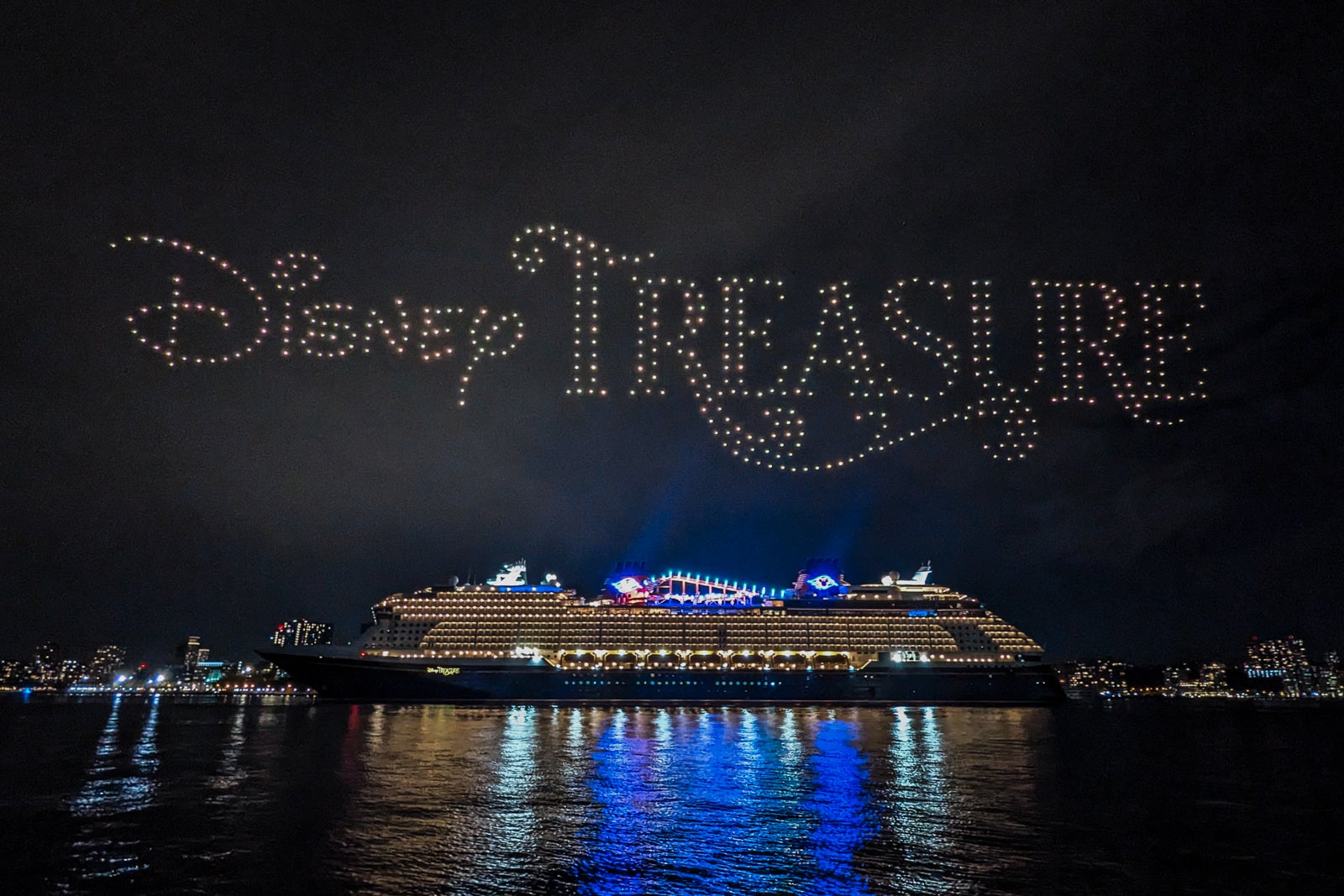
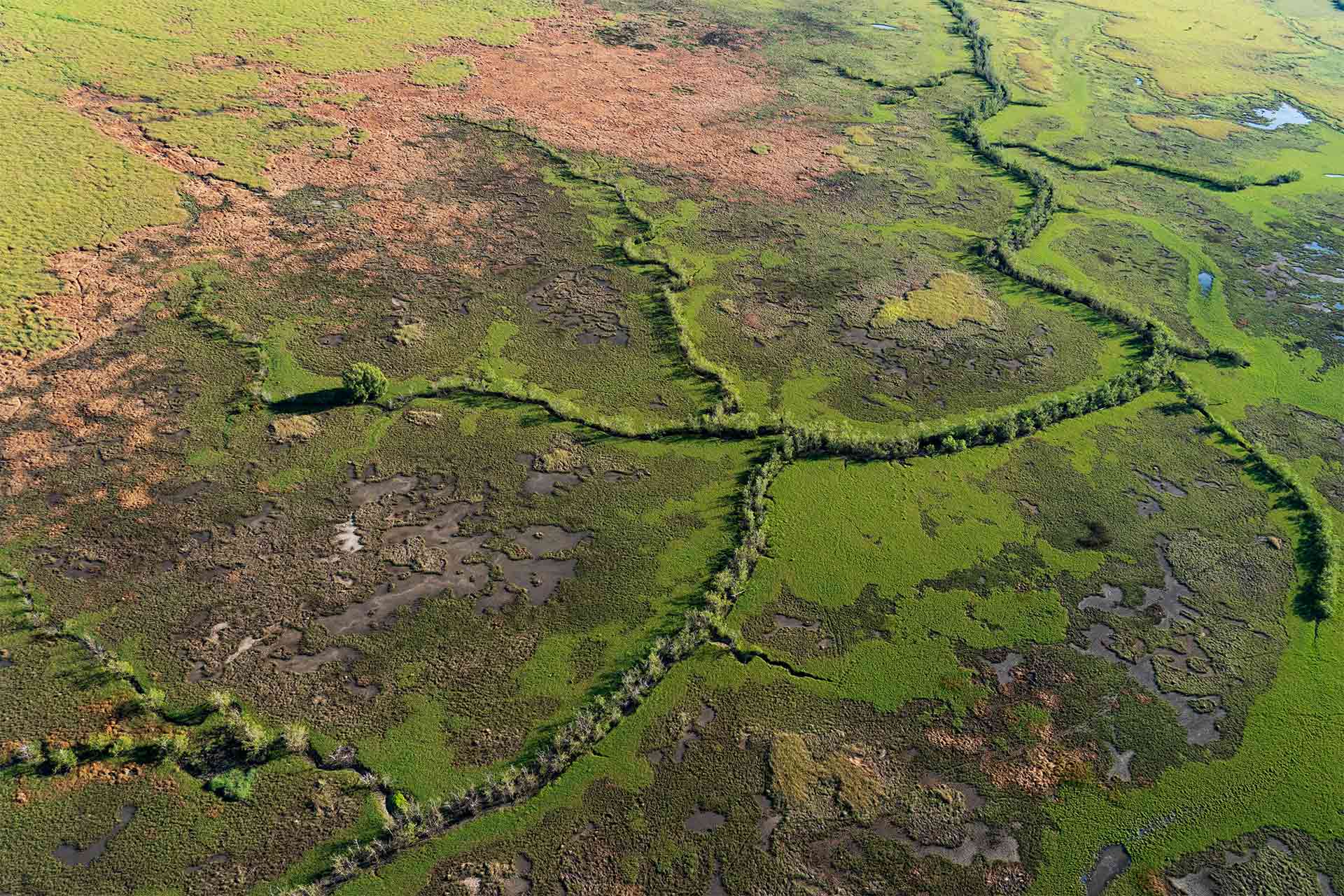
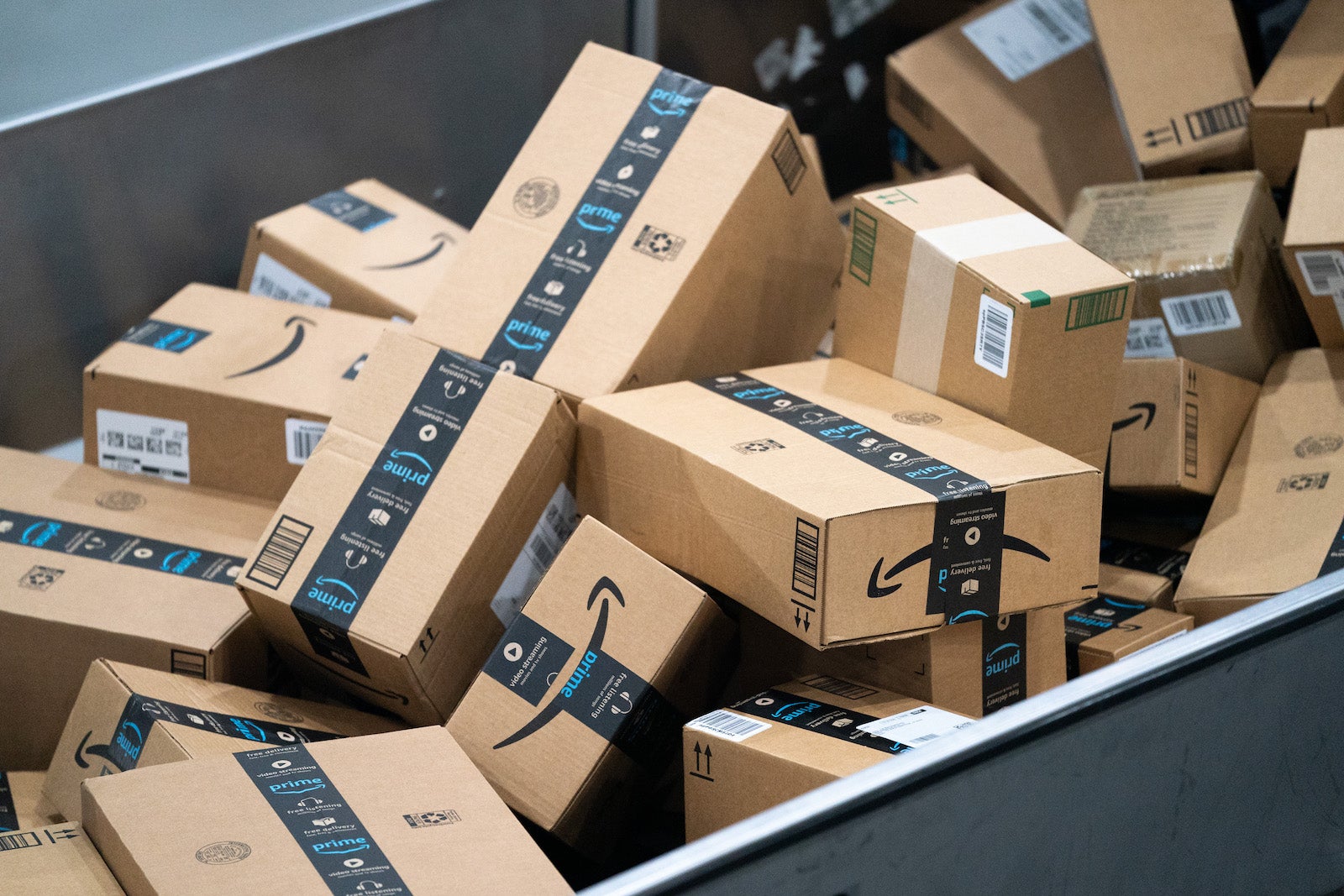


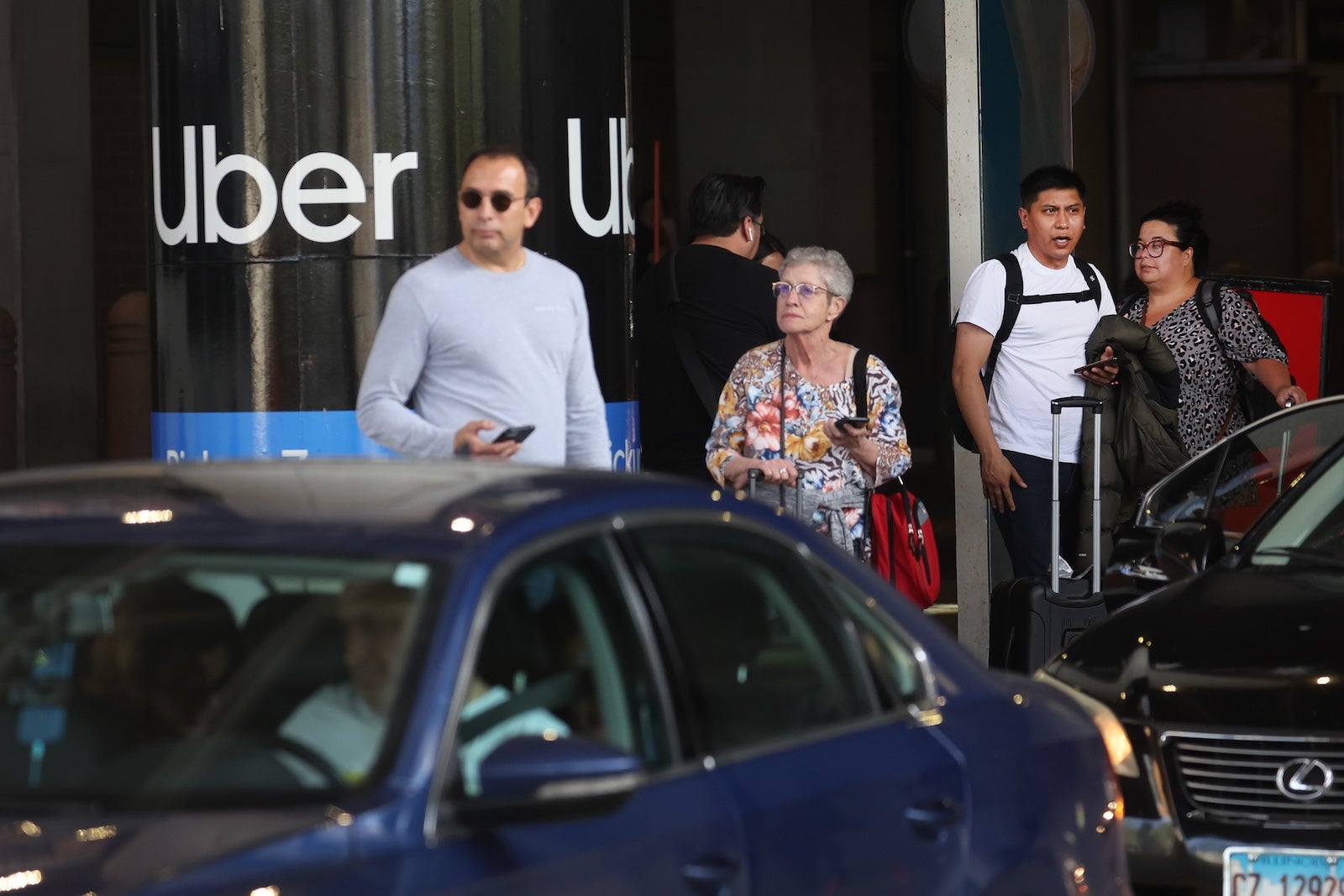





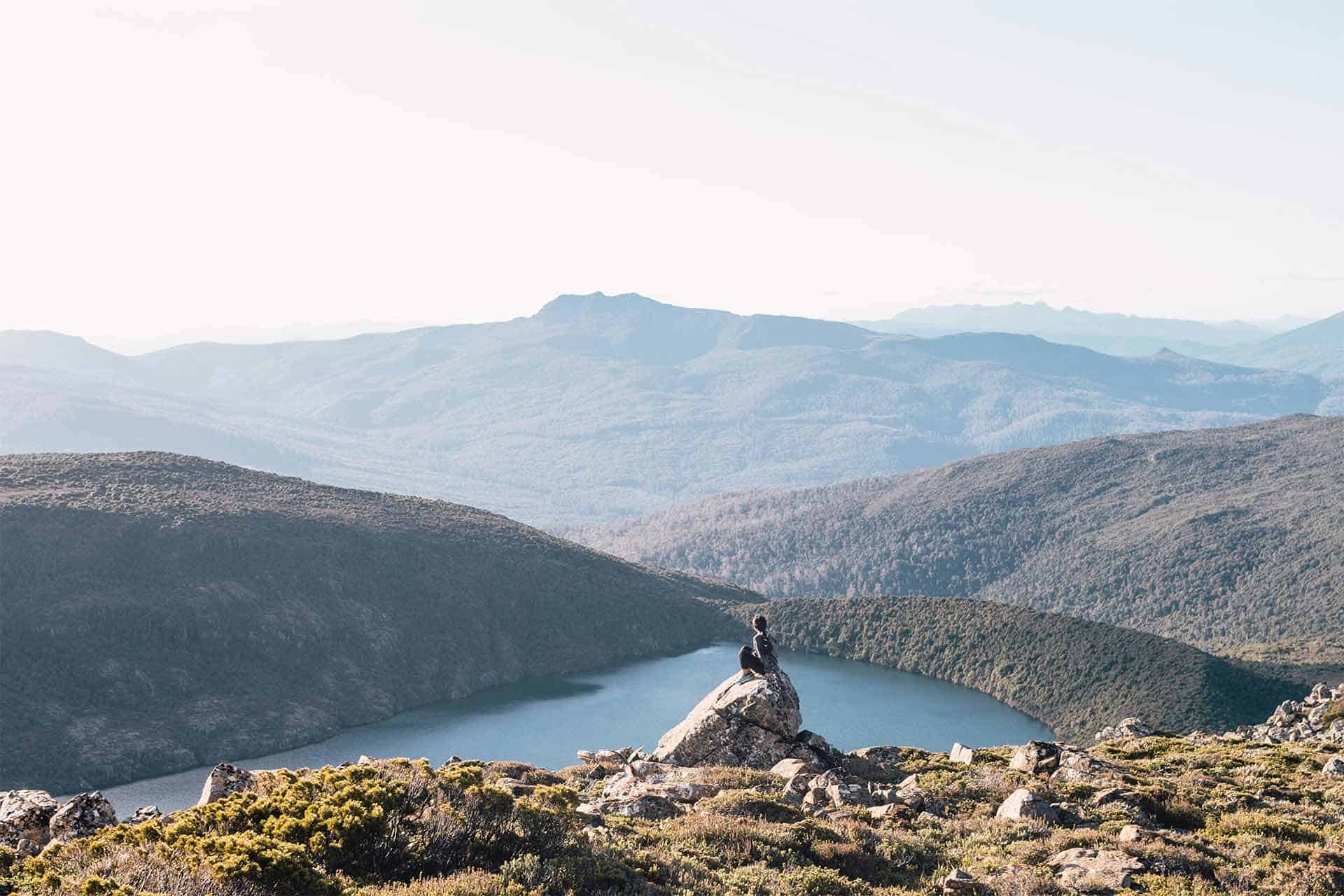



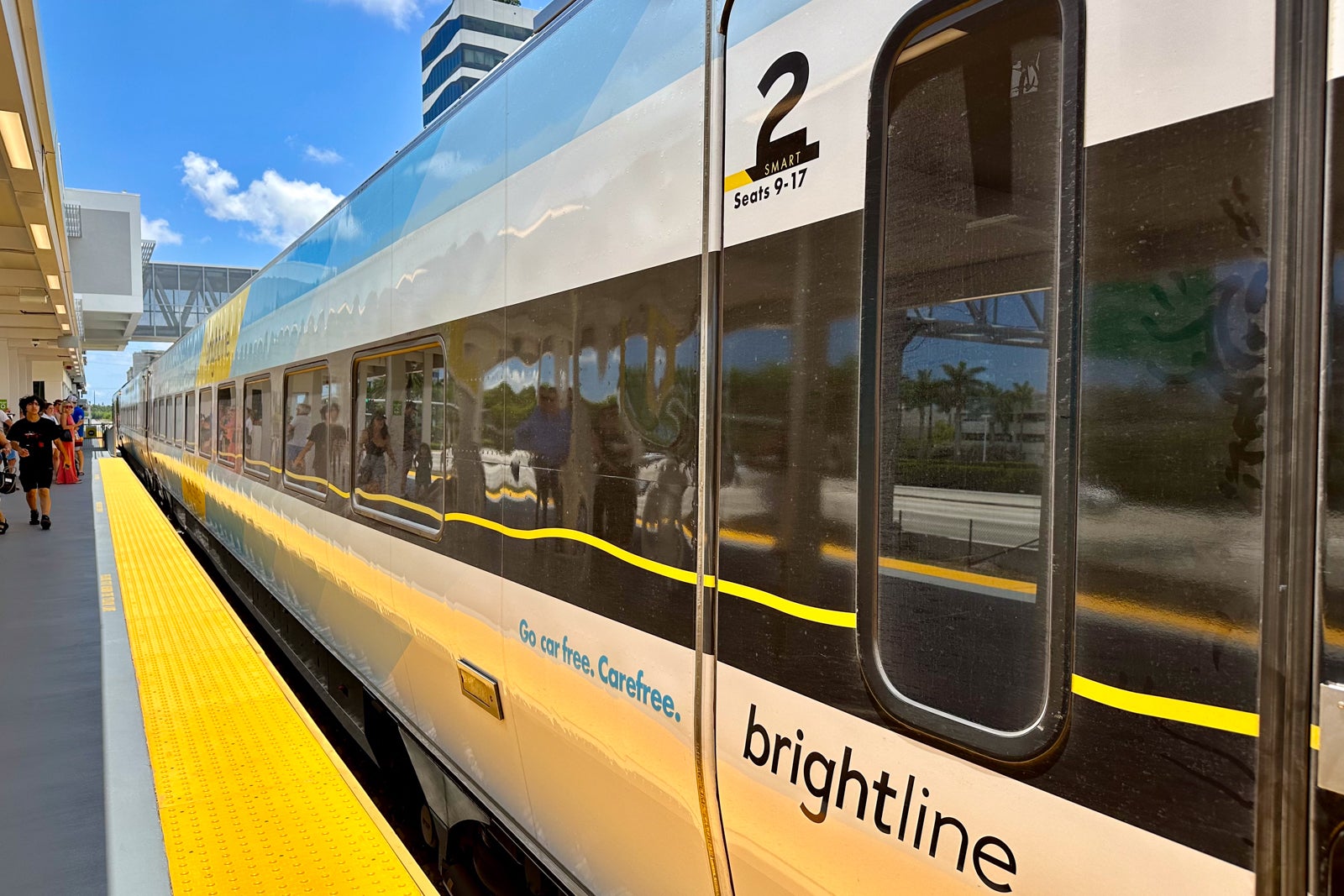

 English (US) ·
English (US) ·